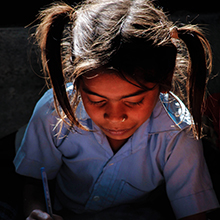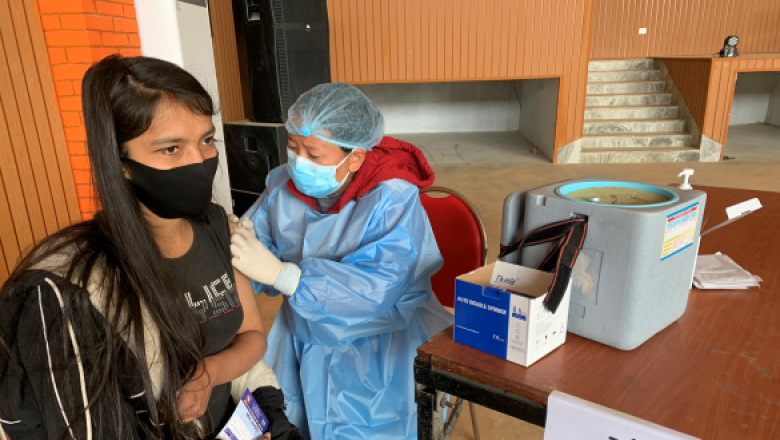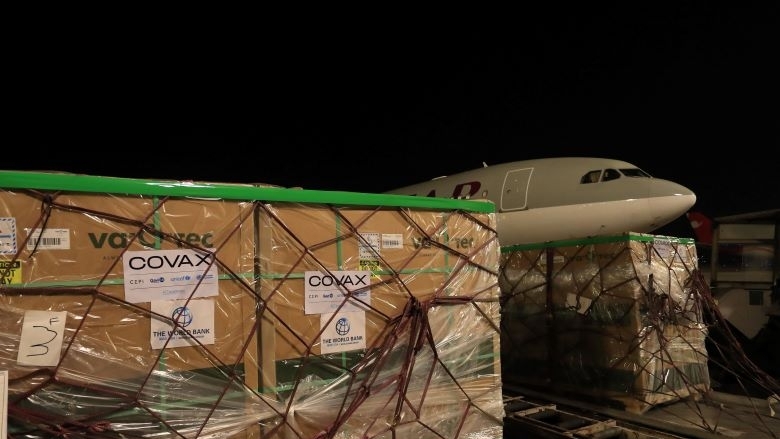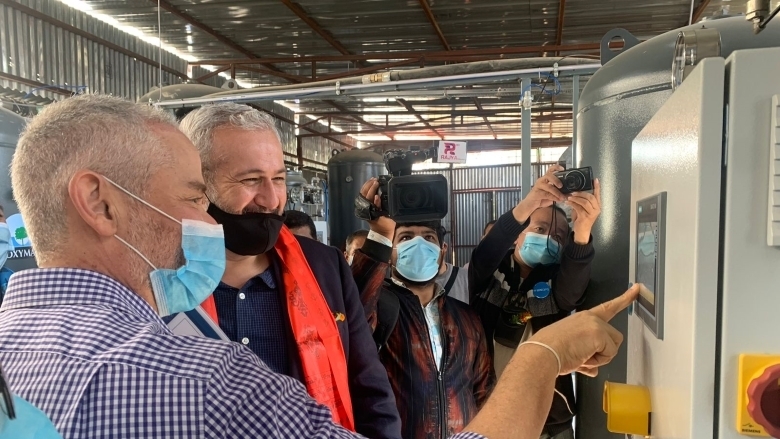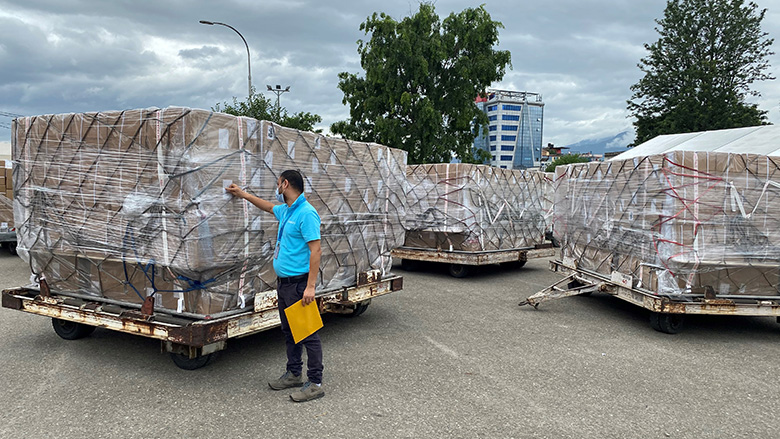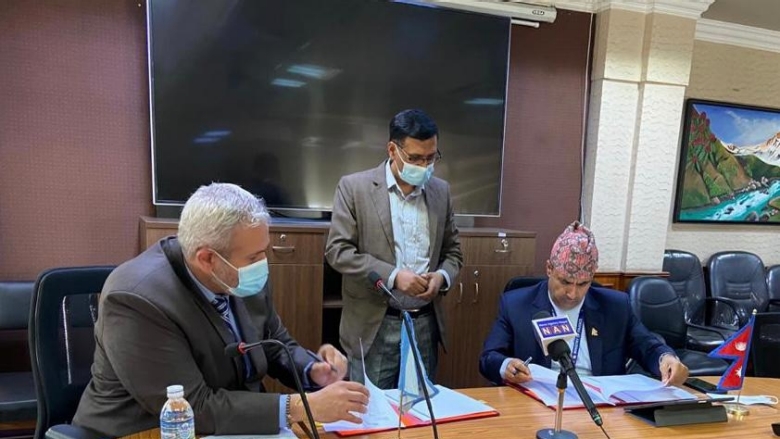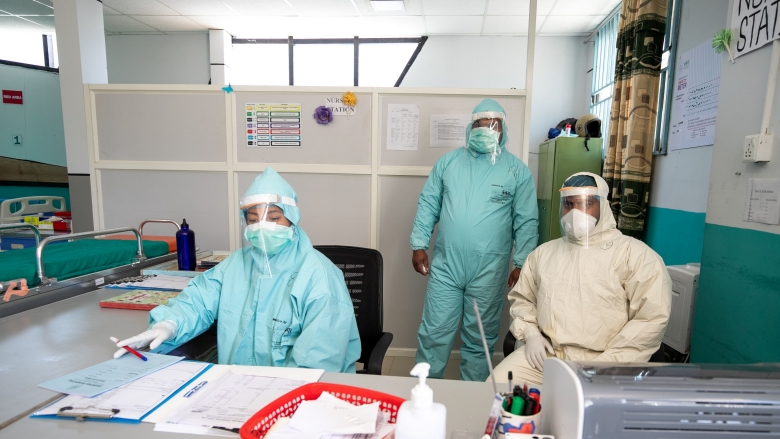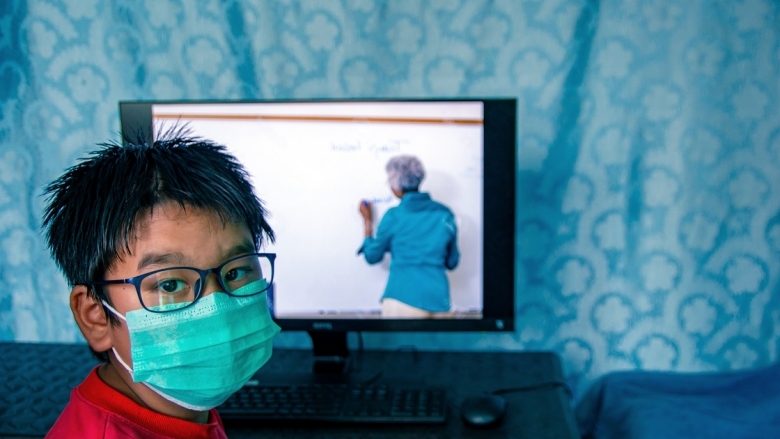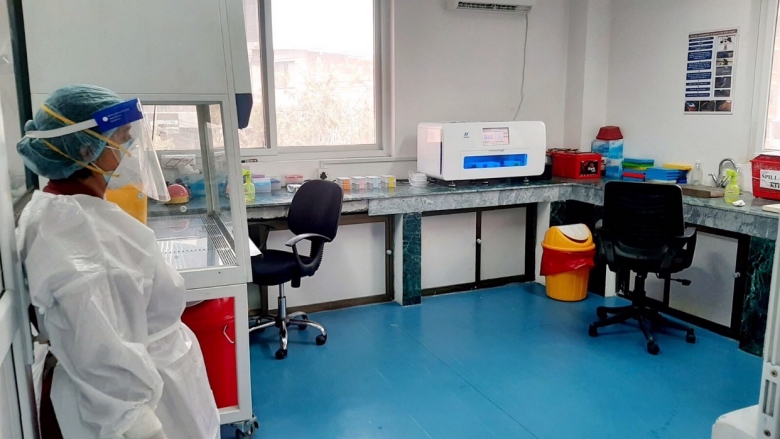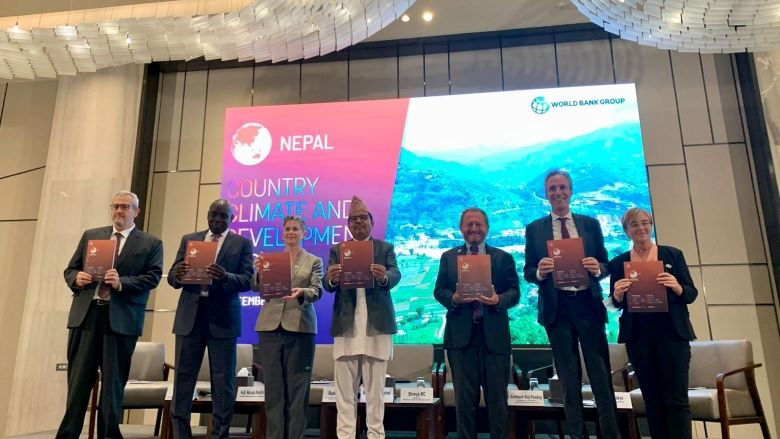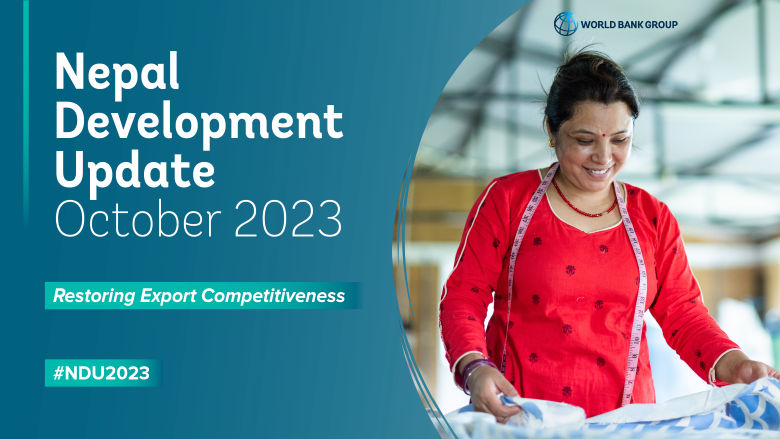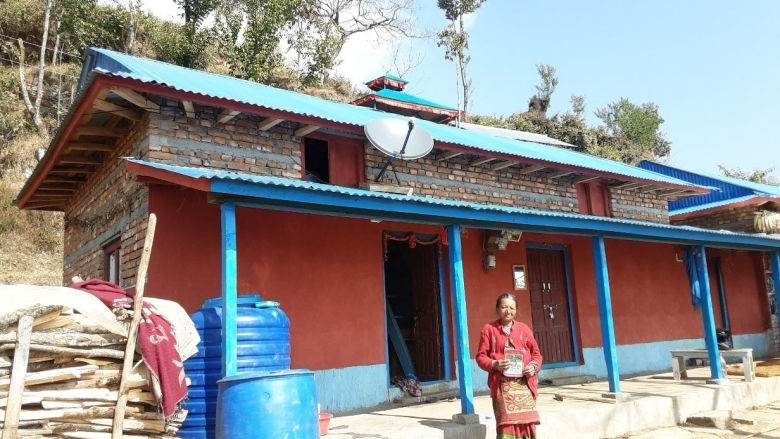Overview
On April 2, 2021, the Government of Nepal and the World Bank signed an agreement for additional financing of $75 million to support access to safe and effective COVID-19 vaccines for Nepal’s prioritized populations. The additional financing builds on the $29 million for the original COVID-19 Emergency Response and Health Systems Preparedness Project that was signed in April 2020. The project will be implemented under the leadership of the Ministry of Health and Population by the Department of Health Services and associated institutional bodies.
About 90 percent of the additional financing will support the purchase, supply and distribution of safe and effective COVID‐19 vaccines. The rest of the financing will support existing public health measures to test, trace and treat the COVID-19 infection through a strengthened health system; community engagement and risk communication to improve the demand and uptake of COVID-19 vaccines; and project implementation, monitoring and evaluation, and learning.
As key results, over 2.24 million RT-PCR tests were conducted as of March, 2021, through 83 laboratories (48 in public sector and 35 in private sector), up from 1 lab capacitated to undertake RT-PCR tests in March 2020. Over 12,903 beds in 224 isolation facilities were upgraded and 946 beds in 43 ICU facilities were upgraded to support isolation and treatment of COVID-19 patients presenting with complications respectively. A multi-pronged community engagement and risk communication strategy leveraging print, mid, mass and mobile media reached out to over 20 million viewers.
The World Bank Group continues to work closely with the Government on Nepal’s COVID-19 related priorities based on the following four pillars and under a broader Green, Resilient, and Inclusive Development approach:
Pillar 1: Support to health for saving lives threatened by the virus including procurement and deployment of life-saving vaccines. The Bank responded immediately to the crisis caused by COVID-19 via a $29 million IDA credit to strengthen national systems for public health preparedness in the country, and through an additional financing of $75 million to support the procurement of COVID-19 vaccines.
Pillar 2: Social response for protecting poor and vulnerable people from the impact of the economic and social crisis triggered by the pandemic. The World Bank has provided $10.85 million to respond to the pandemic’s impact on the school sector. In addition, World Bank investments across several projects are expected to create over 19 million person days of employment.
Pillar 3: Economic response for saving livelihoods, preserving jobs, and ensuring more sustainable business growth and job creation by helping firms and financial institutions build resilience in recovery (rebuilding better). The ongoing World Bank portfolio has been repurposed and restructured making about $300 million available for COVID-19 relief and recovery efforts. About $140 million was also released in advances for accelerating achievement of results across the Program for Results operations. The Government of Nepal and Development Partners have recently started a joint green recovery initiative to help Nepal get back on track to achieve Middle Income Status and the Sustainable Development Goals by 2030.
Pillar 4: Support for strengthening policies, institutions and investments for resilient and sustainable recovery. Proposed development policy credits will focus on building financial stability, fiscal resilience and economic recovery aimed at sustainable and inclusive growth.


